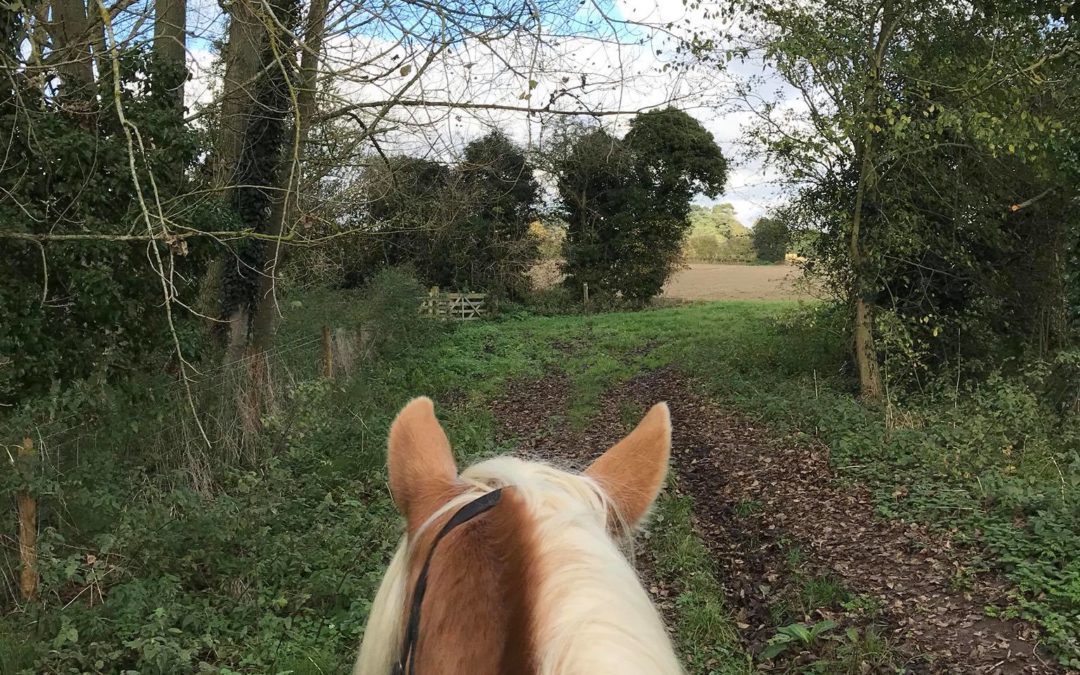
Trusting our horses.
The first thing that springs to mind is trusting the horse to keep us safe, trusting the horse to clear a jump, or trusting a horse to do it’s job well. But how well do you really trust your horse? Do you trust them to make their own decisions? Do you trust them to think for themselves?
We all love our horses dearly and whatever we do with our horses, whatever discipline we choose, we all have our horses’ best interests at heart.
When training, we systematically break down every aspect of a new movement and encourage our horses in so many different ways; clucks, clicks, whistles, kisses or treats.
I hear so often from people that their horses become “bored” with training or do not “perform” well in certain scenarios and the trainers resign to the fact this must be why their horse isn’t learning or progressing.
Horses love routine. They love predictability. Horses do not become bored with training, as repetition is the way they learn; the trainer is the one lacking in patience! People do not like taking steps back and repetitive behaviour for them is the issue. If the horse starts to become unresponsive to training, it is worth taking a moment to think outside the box!
So the question again, how well do you trust your horse? Do you give your horse credit for their intelligence, for their way of thinking, to work things out? It’s very easy to overlook their thought processes. Let me explain…
Let’s liken this to a parent/carer and child. My daughter is 18 months old and she is learning every single day.
Naturally, as a mother, I want to “spoon feed” her information and guide her the best I can so she can accomplish new things.
When she tries something new I am on guard and ready to step in and correct her, help her, so she knows how to continue.
But do I trust her? Do I trust her to figure things out by herself? Is my little independant daughter being given a choice if I am stepping in and making the decision for her on every attempt at something new? Or am I being impatient for her to learn?
By posing the question to her, for example, to climb onto a step, it would surely help with her mindfulness and decision making to guide her, but ultimately to let her try to figure it out for herself. I have presented a task to her, she decides on how to proceed and the time taken to achieve the results is totally dependant on the individual – my baby girl.
Even more simply, if you are the one learning a new skill. Isn’t it frustrating if you are trying to work something out and your teacher doesn’t give you time to think? Or if they start repeating louder and more slowly, still, without giving you time? Isn’t it patronising? This is likely to make you feel under pressure and less willing to learn more.
So similarly, for a horse to carry out a new task, it cannot be as black and white as “learn, praise, mastered!” in a day. Sometimes it takes time and that is ok. Every horse in an individual, they are all different.
Trust and patience go hand in hand when learning with a horse. Have you ever asked your horse to do something, they haven’t understood and you ask again with more gusto, with more steps to your training, perhaps? Or do you trust him to make sense of the task at hand? By “dumbing down” our conversation with our horses, are we really allowing them to think? Are you really listening to them? Too many cues, or repeating louder does not make the lesson more easily understood, but amplifies any anxieties present and adds tension to the situation. Ultimately, the trainer becomes prone to frustration and the horse at best becomes confused and at worst walks away having had a less than positive experience.
Have you ever had a moment with your horse, when they spontaneously moved so beautifully, or had given you their mind, wholly, even just for a moment? How did it make you feel?
These moments aren’t a fluke. A horse has senses and are incredibly receptive to their environment and to us. Your horse makes decisions; sometimes they are without giving us a second thought, sometimes with us in mind.

What I have learnt is quietness and calm are underrated. Too many people are in a rush and do not want to take the time to truly get to know their horse.
Asking softly, listening, being trusting and patient, will all result in more effective learning, a happier horse and a stronger bond between horse and handler.
Learn to play with your horse, enrich their learning with questions rather than demands and expectations. Learn to understand that they are much more capable than we give them credit for.
If you truly believe horses to be sentient beings, perceptive… how “loud” are your cues currently whilst riding or on the ground? How much movement do you give in the saddle; do you kick or squeeze with your legs? Do you pull or give tension on the reins? Where is your head? How are your hips positioned? Are your legs tense? Or relaxed? How animated are your actions? Are they shouts or gestures?
I have found that my horse is more and more responsive with the more freedom I give. The softer I am, the less tension, he is more receptive of what I am asking. Practise letting your mind go, feel your body relax and take time.
Become a horse person, not just a horse owner.


